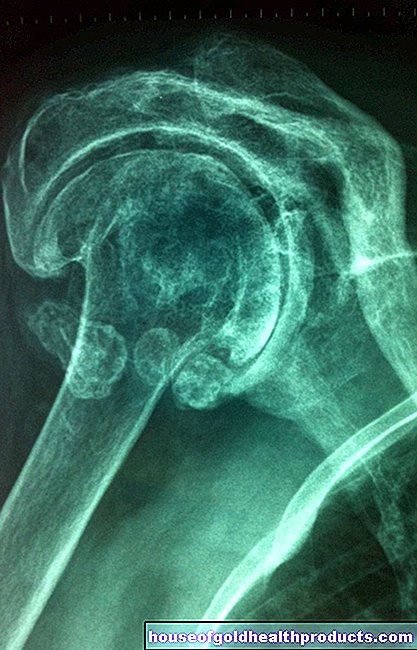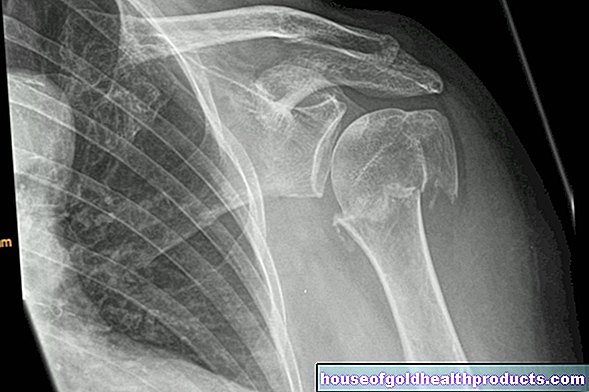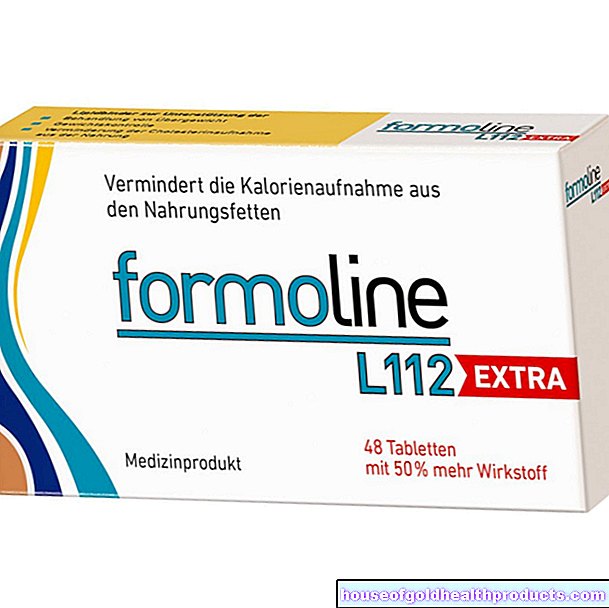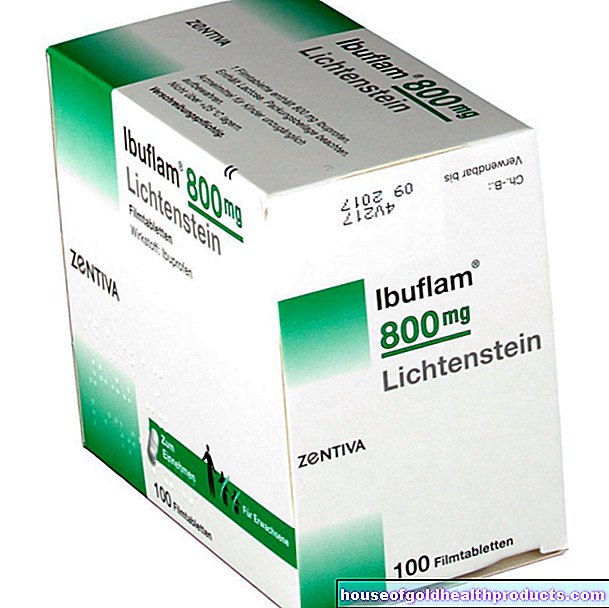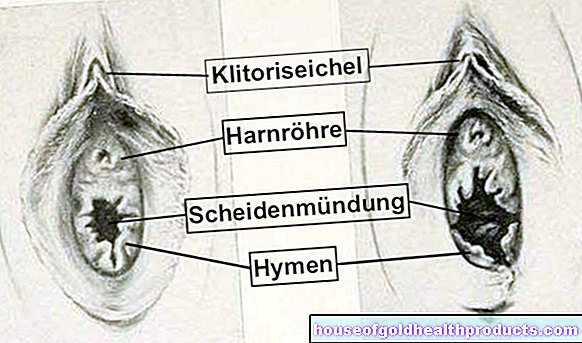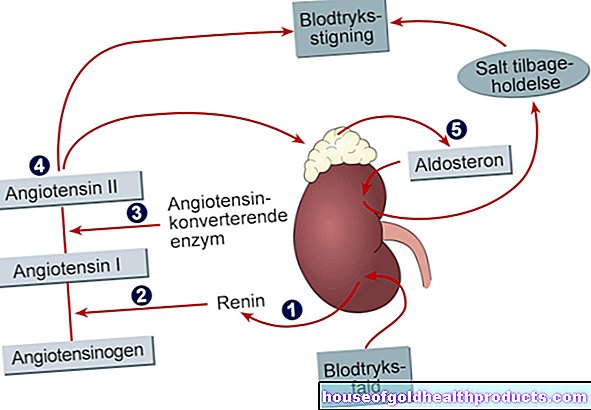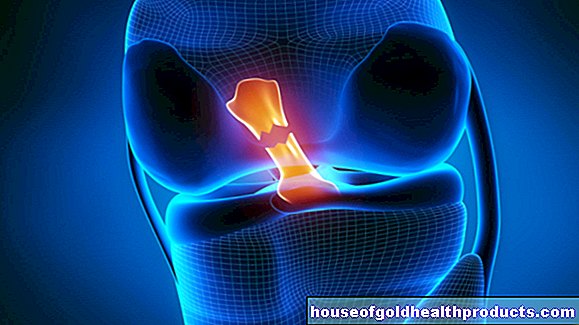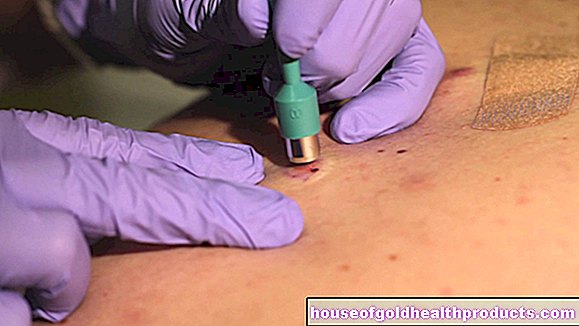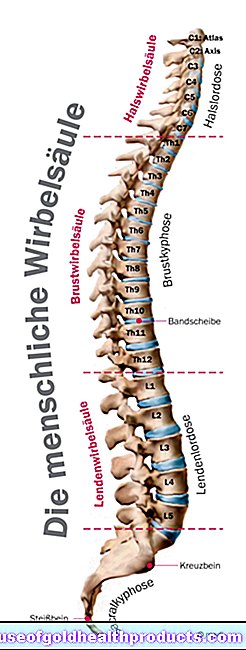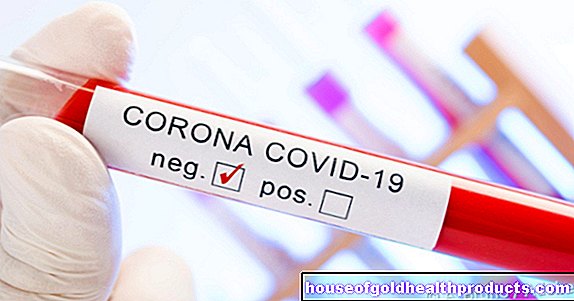Gestational dementia
Nicole Wendler holds a PhD in biology in the field of oncology and immunology. As a medical editor, author and proofreader, she works for various publishers, for whom she presents complex and extensive medical issues in a simple, concise and logical manner.
More about the experts All content is checked by medical journalists.Pregnancy dementia or breastfeeding dementia is not a real dementia in which brain cells die irretrievably. Instead, the hormones are to blame for pregnant and breastfeeding women to forget something more often. Read here what can cause pregnancy dementia, how it manifests itself and what you can do about it.

Pregnancy dementia: what is it?
Pregnancy or breastfeeding dementia affects - as the name suggests - pregnant or breastfeeding women. In expectant mothers, the poor ability to concentrate and remember is usually really noticeable towards the end of the pregnancy. This is by no means a subjective feeling, as studies have shown, but a measurable phenomenon. Around 80 percent of pregnant and breastfeeding women struggle with poor memories. The term dementia is completely misleading in this context. In contrast to, for example, senile dementia, no degenerative structural changes whatsoever can be detected in the brain of the affected women: brain cells are therefore not lost in pregnancy dementia! Rather, studies have shown that the brain volume in mothers even increases significantly after birth.
What triggers pregnancy dementia?
Even if no brain cells die in pregnancy dementia, something happens in the brain. As is to be expected in this phase, the hormones seem to be primarily responsible. Especially towards the end of pregnancy and after the birth, a lot happens again in terms of hormone levels in the female body: The levels of progesterone and estrogen fall with the birth of the child and the expulsion of the placenta, while those of oxytocin and prolactin rise. The latter promote the bond between mother and child. This is why scientists suspect that the woman's attention is now so focused on the baby that everyday actions and processes are simply neglected or simply forgotten.This is confirmed by studies that show that during this phase the brain volume increases, especially in those regions that are important for maternal motivation, the processing of emotions and for problem solving. So the brain focuses on the mother-child relationship.
In addition, the stress hormone cortisol can promote gestational dementia. If the cortisol level rises, forgetfulness increases. Sleep problems in particular, which many pregnant women struggle with, especially towards the end of their pregnancy, drive up cortisol levels. After the birth, the baby then causes further lack of sleep. However, breastfeeding seems to have a positive effect in this context: It causes the cortisol level to drop again.
In addition to a lack of sleep, other factors can impair memory performance, for example a problematic social environment, physical and emotional stress, and being overwhelmed as a mother.
How does gestational dementia manifest itself?
House keys, doctor's appointment, brushing your teeth - forgotten everything? What was always easy to do can suddenly become a challenge for pregnant and breastfeeding women. Even those who were always well organized before pregnancy are not protected from gestational dementia. Many women even neglect daily rituals such as taking medication.
In addition to the forward-looking memory, i.e. planning and keeping appointments, some new mothers sometimes simply lack the right words. These word-finding disorders can also be signs of pregnancy dementia (breastfeeding dementia). In addition to verbal memory, it also affects working memory. Short-term memory, on the other hand, is less affected.
What helps with gestational dementia?
You are not completely at the mercy of your hormones and the problems that arise from them. With a few small changes in behavior, the symptoms of pregnancy dementia (breastfeeding dementia) can be alleviated somewhat:
- Avoid stress: hand over household chores
- adequate sleep and rest (sleep when the child is asleep)
- full and regular meals
- much liquid
- breastfeeding (inhibits the release of cortisol)
You can also use simple tools to boost your memory. For example, write down important appointments or tasks that need to be done. You can also improve your memory by doing some reading or doing crossword puzzles.
Pregnancy dementia: when to see a doctor?
It is completely normal that you are a bit more forgetful and disorganized than usual towards the end of the pregnancy and after the birth. This will normalize again by the end of breastfeeding at the latest. However, if you discover not only the typical signs of gestational dementia, but if you are also extremely sad, depressed and lackluster, you should ask a doctor for advice. These could be signs of depression.
Tags: laboratory values anatomy dental care